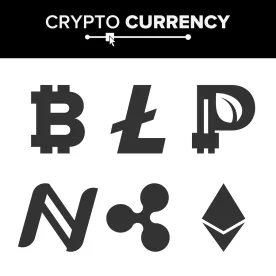Australia announced on April 11 that all digital currency exchanges operating in the country will be regulated by the Transaction Reports and Analysis Centre (“AUSTRAC”), the country’s financial intelligence agency. A byproduct of the government’s Anti-Money Laundering (“AML”) and Counter Terrorism Financing (“CTF”) Act (on which we previously have blogged, both here and here), the new laws require all “digital currency exchange providers” with operations in Australia to register with AUSTRAC and, additionally, meet compliance and reporting obligations by May 14.
AUSTRAC’s new policing mandate represents a meaningful step in strengthening the country’s efforts under the AML/CTF Act, first enacted in 2006. In brief, that law—now applicable to all digital currency exchanges operating in Australia—requires all regulated entities such as banks and money transfer operators to collect information to establish a customer’s identity, monitor transactions, and report activity that is suspicious or involves cash over $10,000 Australian dollars. As summarized by AUSTRAC on its website, the AML/CTF Act:
. . . . places a number of obligations on reporting entities when they provide designated services, including:
-
enrolling and/or registering your business with AUSTRAC
-
establishing and maintaining an AML/CTF program
-
ongoing customer due diligence and reporting (suspicious matters, threshold transactions and international funds transfer instructions).
Reporting entities determine how they meet their obligations based on their assessment of the risk of whether providing a designated service to a customer may facilitate money laundering or terrorism financing. These requirements echo similar AML regulatory requirements in the United States that require digital currency exchangers and administrators to register with FinCEN as money services businesses, and with the various States as money transmitter businesses. AUSTRAC also has issued a guide for digital currency exchange service businesses to prepare and implement their AML/CTF programs. The guide sets forth a check list of tasks necessary to developing and maintaining an adequate AML/CTF program, including the completion of a risk assessment of the business, designing a training program, and creating procedures for responding to AUSTRAC feedback.
Australia appears to be seeking to position itself as a welcome, but safe environment for participating in the bourgeoning virtual currency industry. For instance, the April 11th announcement comes on the heels of other recent activity in Australia concerning virtual currencies: on April 9, AUSTRAC announced that Blockbid will become the third recipient of a license to operate as a virtual currency exchange. Indeed, Nicole Rose, the CEO of AUSTRAC, stated in the April 11th announcement that the new regulatory regime “will help protect [digital currency exchanges] from money laundering and terrorism financing, while regulation will also help strength public and consumer confidence in the sector[.]”
These developments come at an important time in the industry. In the last year, numerous regulatory and enforcement actions have been initiated across the globe. As is now clear, countries’ efforts to bring the nascent sector under the fold of laws and regulations has a meaningful impact on the value of these currencies. Looking ahead, regular changes with respect to how various countries regulate the industry are sure to materialize. Notably, on the same day that AUSTRAC made its announcement regarding the new AML requirements for cryptocurrency providers, Taiwan issued a similar announcement that its Ministry of Finance will seek to regulate digital currencies under the same AML rules in Taiwan which already apply to the traditional financial sector.



 />i
/>i
